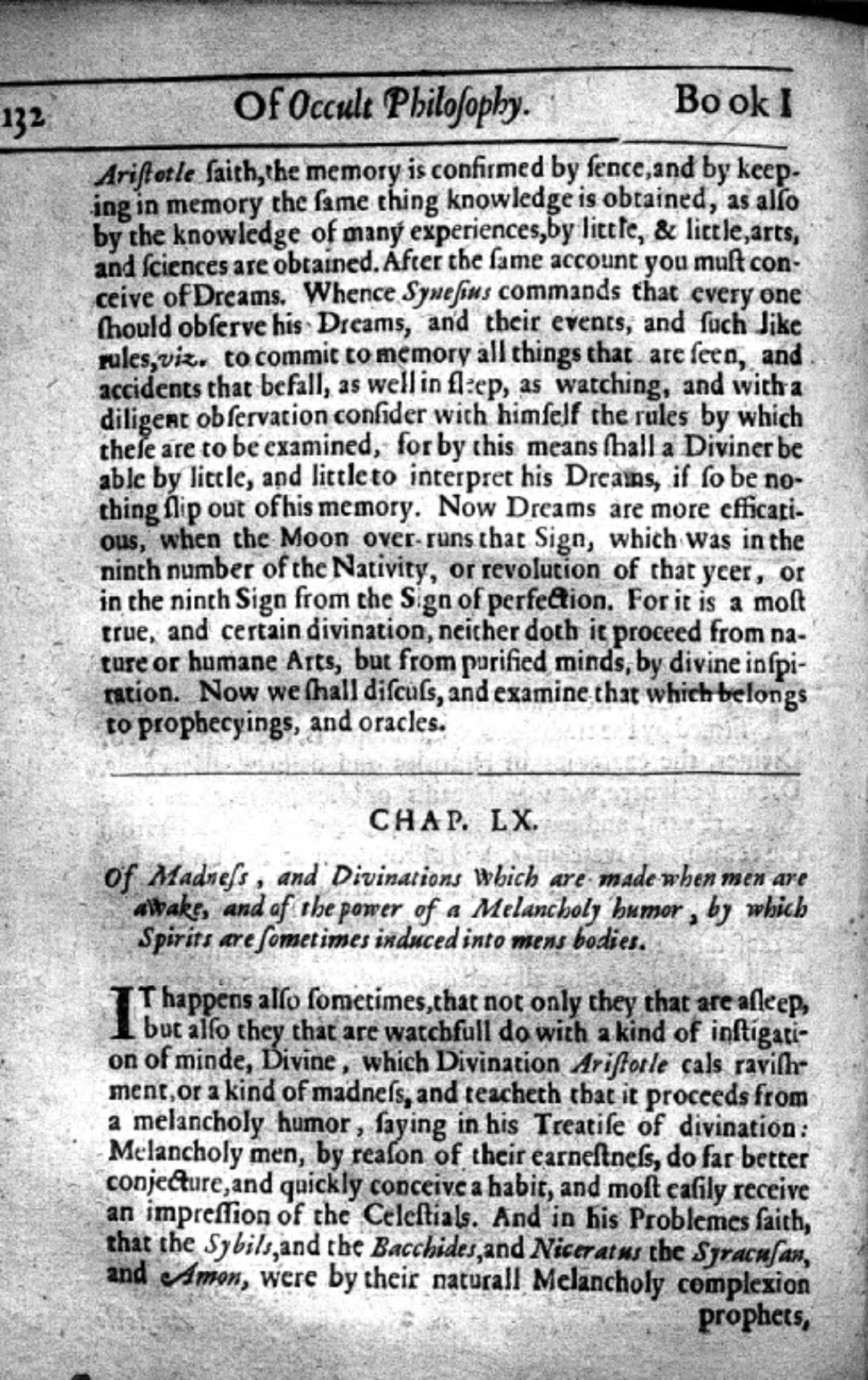Aristotle saith, the memory is confirmed by sence, and by keeping in memory the same thing knowledge is obtained, as also by the knowledge of many experiences, by little, & little, arts, and sciences are obtained. After the same account you must conceive of Dreams. Whence Synesius commands that every one should observe his Dreams, and their events, and such like rules, viz. to commit to memory all things that are seen, and accidents that befall, as well in sleep, as in watching, and with a diligent observation consider with himself the rules by which these are to be examined, for by this means shall a Diviner be able by little, and little to interpret his Dreams, if so be nothing slip out of his memory. Now Dreams are more efficacious, when the Moon over-runs that Sign, which was in the ninth number of the Nativity, or revolution of that yeer, or in the ninth Sign from the Sign of perfection. For it is a most true, and certain divination, neither doth it proceed from nature or humane Arts, but from purified minds, by divine inspiration. We shall now discuss, and examine that which belongs to prophecyings, and oracles.
CHAP. LX.
Of Madness, and Divinations which are made when men are awake, and of the power of a Melancholy humor, by which Spirits are sometimes induced into mens bodies.
It happens also sometimes, that not only they that are asleep, but also they that are watchfull do with a kind of instigation of minde, Divine, which Divination Aristotle cals ravishment, or a kind of madness, and teacheth that it proceeds from a melancholy humor, saying in his Treatise of divination: Melancholy men, by reason of their earnestness, do far better conjecture, and quickly conceive a habit, and most easily receive an impression of the Celestials. And in his Problemes saith, that the Sibyls, and the Bacchides, and Niceratus the Syracusan, and Amon, were by their naturall Melancholy complexion
prophets,

